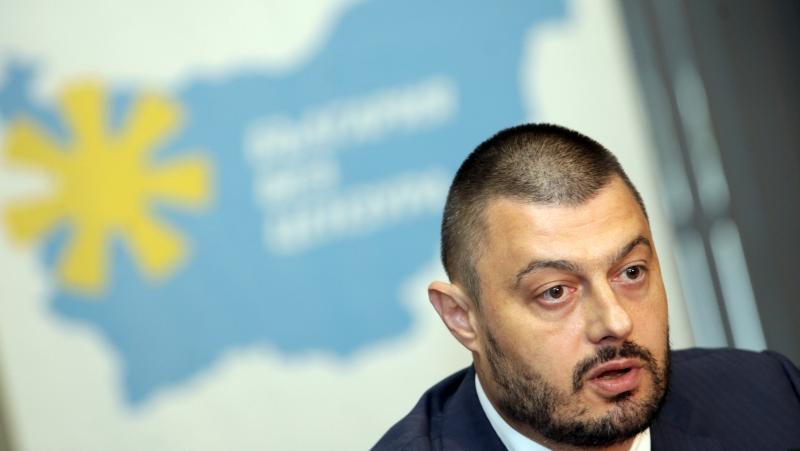The BABH has banned private laboratories from conducting research on the disease
A series of videos posted on Facebook show an extremely upset sheep farmer from Velingrad who does not believe his flock is suffering from plague by small ruminants. Yesterday evening, the BABH announced that in a livestock facility in Velingrad the first outbreak of the disease, which raged in the country in 2018, has been detected. The announcement states that it concerns 1,769 sheep established in 5 interconnected livestock facilities. It did not say which laboratory tested positive for the virus, but it is likely the National Reference Laboratory. Veterinarians from the area will be given to the prosecutor’s office because they have not alerted the official veterinary authorities about the plague for more than two weeks, the press release states.

Wrapped in the Bulgarian flag and surrounded by his colleagues, the sheep farmer is convinced of two things: first, his sheep are not sick. And secondly, “the state is looking to liquidate us.” Desperate to the extreme, the sheep farmer says that his animals give birth, give milk and look good, which means that he is the victim of a conspiracy, the purpose of which is to destroy the Bulgarian flocks, and then the whole of Bulgaria. He calls his colleagues to protect him, “because today they are with me, tomorrow they will come to you.”
The breeder also says that the BABH has banned private laboratories from carrying out tests for plague infection. He tried to take a sample to a Plovdiv laboratory, but they said that they would not examine it because of the ban.
We remind you that in August of this year, the BABH checked the native herds for the disease and reported that Bulgaria is free of plague. At the same time, dozens of outbreaks were discovered in Greece and Romania. Unlike other countries neighboring Greece, such as Croatia, Bulgaria did not close its borders to imports of sheep and goats from the affected countries, as it controlled their health status at the borders. There were fears that the contagion could be introduced by illegal animal imports.

We remind you that in 2018 the plague of small ruminants in our country led to the mass euthanization of animals, mostly in the regions of Yambol and Burgas. Only the sheep breeder from the town of Bolyarovo, Ana Petrova, did not allow her flock to be destroyed, as she was convinced that the animals were healthy. Volunteers from all over the country defended her farm, so the BABH was unable to either take samples for re-examination or euthanize the animals. Therefore, Ana Petrova was punished by excluding her herd from the tied support subsidies.
The photo of the weeping grandmother Dora, cradling a goat doomed to be euthanized, remains memorable. Her herd was in the Yambol village of Sharkovo.
#Upset #disbelief #flocks #plaguestricken #sheep #farmers #Velingrad #call #rebellion

The article mentions the ethical considerations surrounding the euthanasia of animals during outbreaks. What frameworks should guide these decisions, balancing public health concerns with the welfare of animals? How can transparency and open communication contribute to ethical decision-making in such challenging situations?
## Open-Ended Questions for Discussion Based on the Article:
This article raises many important questions about the outbreak of plague in sheep, the reactions of farmers, and the role of authorities.
**Thematic Sections and Discussion Questions:**
**1. The Outbreak and its Impact:**
* Should private laboratories be allowed to test for animal diseases? What are the potential benefits and drawbacks of such a system?
* How should authorities balance the need for transparency and public safety when dealing with animal disease outbreaks?
* What are the economic and social consequences of a plague outbreak for sheep farmers and rural communities?
* How can farmers best prepare for and respond to potential outbreaks of this or other animal diseases?
**2. Farmer’s Perspective and Trust:**
* What factors contribute to the farmer’s distrust of authorities and his belief in a conspiracy?
* How can authorities better communicate with farmers and build trust during disease outbreaks?
* What are the potential consequences of misinformation and mistrust in such situations?
**3. Public Health and Animal Welfare:**
* What ethical considerations are involved in the euthanasia of animals during disease outbreaks?
* How can we balance the need to control the spread of disease with the welfare of animals?
* What are the long-term economic and social implications of the outbreak for Bulgaria’s agricultural sector?
**4. Lessons Learned and Future Strategies:**
* What lessons can be learned from previous outbreaks of plague in Bulgaria?
* What steps can be taken to prevent future outbreaks and minimize their impact?
* How can we encourage collaboration between farmers, scientists, and government agencies to address animal disease challenges?
**Encouraging Diverse Viewpoints:**
Ensure that the discussion encompasses different perspectives, including:
* **Farmers:** How do their experiences and concerns shape their understanding of the situation?
* **Veterinarians and Scientists:** What scientific evidence informs their recommendations and actions?
* **Government Officials:** How do they balance public health concerns with economic and political considerations?
* **General Public:** What are their expectations and concerns regarding animal disease outbreaks?
By thoughtfully exploring these questions and diverse viewpoints, this discussion can contribute to a deeper understanding of the complex challenges posed by animal disease outbreaks.


